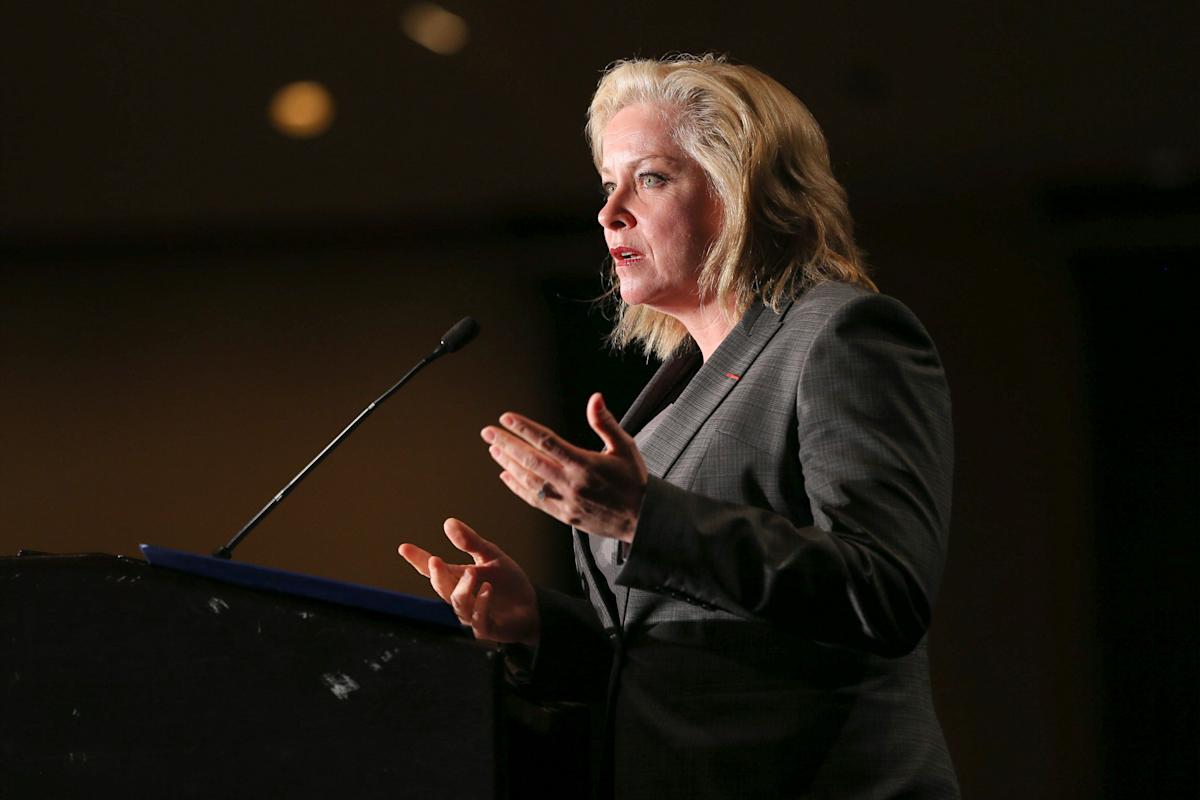“I still believe that if they put tariffs on parts, it would bring the industry to its knees because it’s such an integrated supply chain of parts going back-and-forth the border multiple times,” Hasenfratz said. (Andrew Francis Wallace/Toronto Star via Getty Images) · Andrew Francis Wallace via Getty Images
Linamar executive chair Linda Hasenfratz is urging Ottawa to defend the CUSMA trade pact, warning that any move to impose tariffs on auto parts could severely disrupt the industry’s deeply integrated North American supply chain.
Automakers have been hit hard by U.S. President Donald Trump’s trade war due to tariffs on exported vehicles and metals, which have negatively impacted their bottom lines. Yet, within the automotive industry, the vast majority of products crossing the border, particularly parts, are CUSMA-compliant and operating under zero duties.
Still, there’s a risk that could change. Hasenfratz, board chair of the Association of Equipment Manufacturers, is urging the federal government to work hard to maintain the CUSMA agreement, warning that dismantling it would have a devastating impact on the economy.
“While its spirit and substance have been undermined by the Trump administration, the Canada-U.S.-Mexico Agreement has thus far been key to Canada’s perceived safety net,” said CIBC Capital Markets economist Avery Shenfeld.
Canada’s advantage from the CUSMA carve-out is only as strong as the agreement itself, which will lapse in 2026 unless all parties agree to renew it, he says.
“The cloud of uncertainty will hang over capital spending plans in a broad range of Canadian export sectors,” Shenfeld added, noting that Canada could lose its special exemption at any time.
“I still believe that if they put tariffs on parts, it would bring the industry to its knees because it’s such an integrated supply chain of parts going back-and-forth the border multiple times,” Hasenfratz said. Trying to apply a tariff on each of those crossings would be enormously expensive, she says.
After decades of free trade, trying to “unscramble the eggs,” as many people have said, would be difficult, costly, and wouldn’t create value, she adds.
“Let’s address the concerns that exist and make sure that people are feeling comfortable with the trade agreement we have in any areas that are felt to be lacking,” Hasenfratz said.
If CUSMA stays intact, Linamar stands to benefit as its customers look to onshore products currently sourced from Asia and Europe. With new international trade deals in place, clients are comparing tariff costs, and that’s prompting many to consider localizing their supply chains.
“I see this as a real opportunity for us to potentially get some new business and we’re quoting on such opportunities.”
Hasenfratz is optimistic that Canada’s automotive sector will remain a pillar of the economy. Suppliers, she notes, play an essential role and are poised for growth. She also believes Canada will continue to be a home for vehicle assembly due to its productivity, talent pool, and green, low-cost energy.

